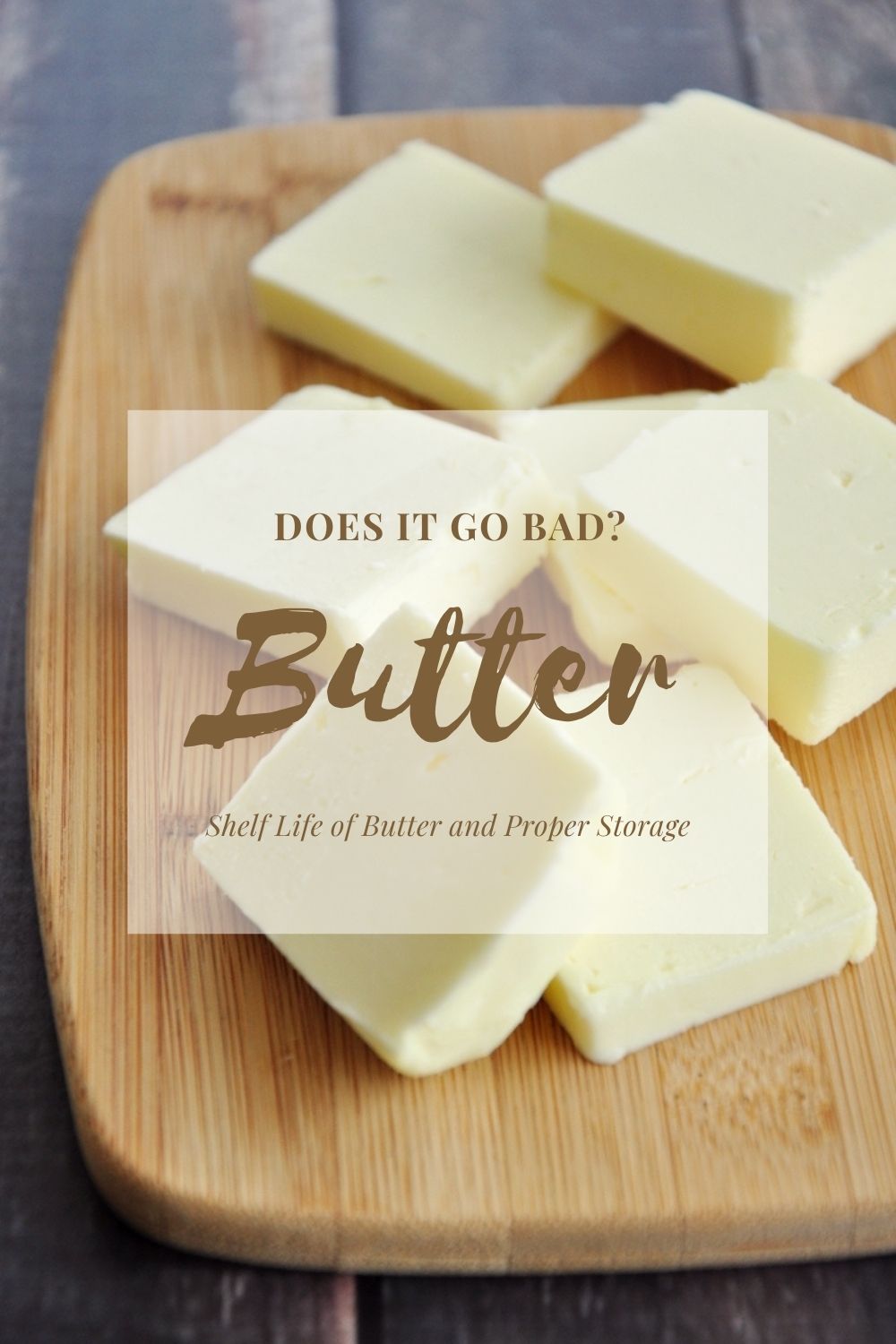Does Butter Go Bad? Shelf Life of Butter and Proper Storage
Does butter go bad? Yes, it does! Find out how long butter and ghee can last, the signs of rancid butter, and how to properly store butter and ghee.
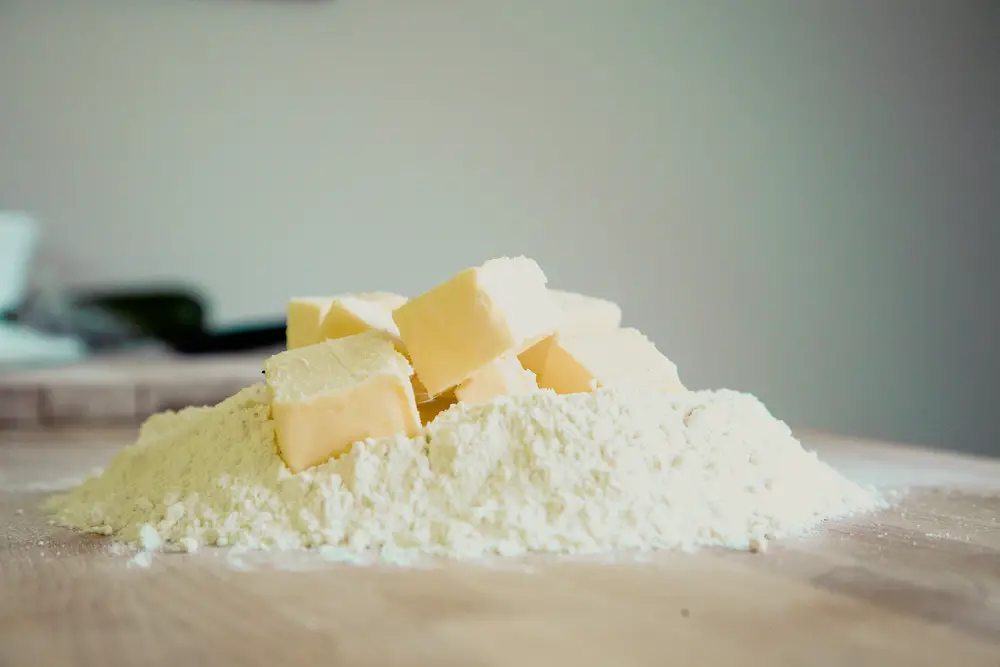
Creamy, smooth and flavorful, butter is a very popular cooking and baking ingredient that you probably use on a daily basis. Does butter go bad? Yes. But unlike other dairy products, butter has a longer shelf life because of its high-fat content and relatively low water content.
Butter undergoes a very long preparation process. Gallons of milk are churned until butterfat separates from buttermilk. It takes 10 to 11 gallons of milk to make a single pound of butter.
You might ask, “What about margarine and ghee?”
Margarine is a non-dairy product. Butter uses animal fats while margarine uses vegetable fats. Studies have found that margarine contains a high amount of trans fat, making margarine an unhealthy choice.
Ghee is clarified butter cooked longer. Ghee is made by cooking butter until the water is removed and the milk solids are caramelized and then strained out. Since milk solids are removed from ghee, it has little to no lactose, making it a perfect alternative for those with lactose intolerance. Butter has a slightly savory to neutral flavor and pale yellow color while ghee has a nuttier flavor and richer golden color.
If you want to stock up on butter and ghee, it is important to take note of their shelf life. Both can go bad over time. Here are the signs of bad butter and ghee and how you can properly store them.
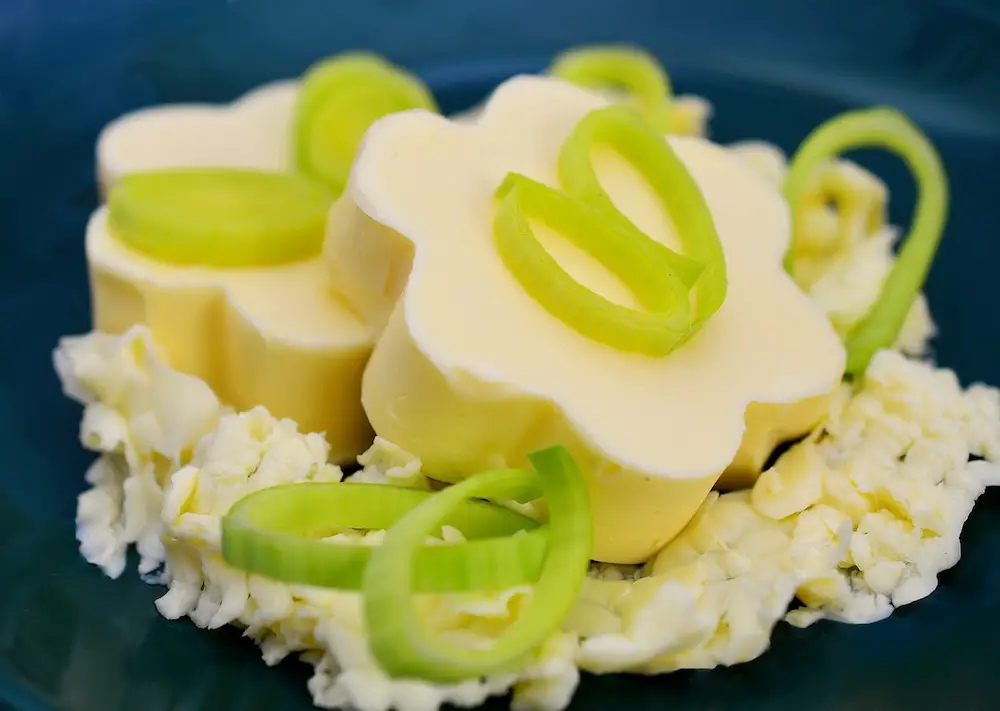
Shelf Life of Butter and Ghee
Many people make their own ghee from high-quality unsalted butter. You can find butter in the refrigerated section in grocery stores and supermarkets while ghee is displayed in the baking section or with the cooking oils. Both have a sell-by date on their packages. This date doesn’t determine when the product expires, it is to give the store owners an idea until when they can display their products. Butter and ghee have different water content, therefore they have a different shelf life as well.
Butter
- Past the printed date, unopened regular butter can last for at least a month in the refrigerator and for six to nine months in the freezer.
- Opened regular butter can last up to two weeks in the refrigerator. If kept in a sealed container, you can keep your butter at room temperature for two weeks.
- Aside from the regular variety, there is also salted butter and flavored butter. Salt added to the butter is a preservative, giving it a longer shelf life. If refrigerated, salted butter can last up to five months while frozen salted butter can last for a year.
- Flavored butter, also called compound butter is just butter mixed with herbs, spices, and other flavorings. Compound butter can last for up to five days in the refrigerator and six months if kept frozen.
Ghee
Since ghee doesn’t contain water it has a longer shelf life. If stored properly and kept frozen ghee can even last indefinitely.
- Unopened jars of ghee stored at room temperature will maintain the best quality nine months after the sell-by date. If kept in the refrigerator, unopened jars of ghee will not spoil.
- Opened jars of ghee will maintain the best quality up to three months if kept in the pantry. You can refrigerate an opened jar of ghee for up to one year.
The quality of butter and ghee will start to decline past their sell-by date. If not stored properly butter and ghee will spoil. Unsanitary practices can also make them go bad faster. Be mindful of the signs of spoiled butter and ghee.
Signs of Bad Butter and Ghee
The following are signs that your butter has already gone bad.
- Discoloration is a sign of rancid butter. Good butter has an even yellow color from inside out. Slice a small portion of your butter, if the inside looks brighter or lighter, then it has gone bad.
- Black spots on butter are signs of mold formation. Butter with mold should be discarded.
If your butter smells bad, decomposing, cheesy or sour then it has already gone bad.
Spoiled butter is too soft– mushy or stringy when touched.
Your ghee has already gone bad if it shows the following signs of spoilage.
- Mold formation indicates bacterial contamination and can make ghee go bad.
- If your ghee turned white instead of its natural yellow color then it is already rancid.
Your ghee has already gone bad if it smells sour or like burnt popcorn.
Spoilage of butter and ghee can be both microbial and chemical. Microbial spoilage is caused by bacterial contamination from the use of unclean utensils and containers. This results in the formation of mold. Chemical spoilage or oxidation causes butter and ghee to go rancid. Exposure to air and light speeds up oxidation.
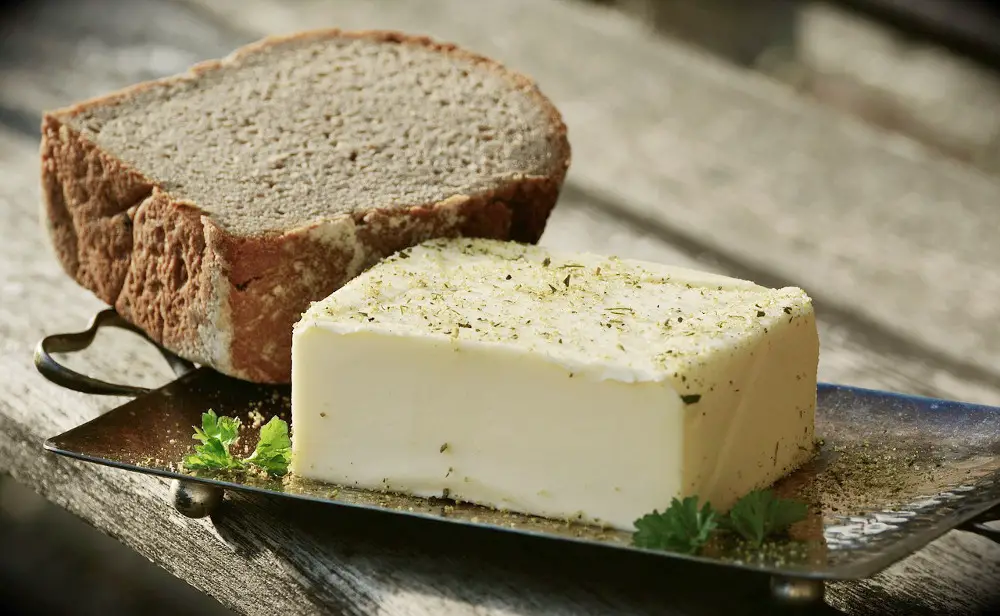
Effects of Spoiled Butter and Ghee
Butter and ghee both have fat which can go rancid over time. If accidentally consumed, spoiled butter or ghee can trigger food poisoning. Symptoms include abdominal pain, fever, diarrhea, vomiting, nausea, and dehydration. Depending on the seriousness of the condition, symptoms may last for a few hours, days or weeks.
Tips for Proper Storage
Healthy and sanitary storage and cooking practices will keep you safe from possible health risks and food poisoning. Follow the following tips on how to properly store butter and ghee.
Proper Storage of Butter
- Keep your butter refrigerated.
- To maximize shelf life, avoid the butter compartment on the refrigerator door where the temperature is warmer. If you don’t use your butter often enough, it is best to store them in the main body of your refrigerator.
- Keep your butter in an airtight container or wrap tightly with plastic wrap or aluminum foil.
- If freezing butter, wrap tightly with heavy-duty aluminum foil or plastic wrap or use a heavy-duty freezer bag. By doing so, your butter will not pick up odors and flavors from other food products in your freezer.
Proper Storage of Ghee
- Store ghee at room temperature. Avoid taking your ghee in and out of the fridge to prevent condensation which can cause unwanted moisture.
- Store your ghee in a cool dark place, preferably in a cabinet to avoid exposure to direct sunlight.
- Keep your ghee refrigerated only if you’re not going to consume it for a long time. Keep the lid of the jar closed at all times to avoid exposure to air and moisture.
Got some butter in your fridge? Butter works well as a flavor enhancer, making it a very versatile ingredient for both cooking dishes and baking. Try making this blueberry chocolate cake or some baked chicken wings.
Butter or ghee? It really depends on your preference, taking note of the flavor differences between the two. It is best to go with what the recipes require. If you’re lactose intolerant, then ghee is the perfect alternative for you. Ghee’s higher smoking point makes it better than butter (and most oils) for cooking.
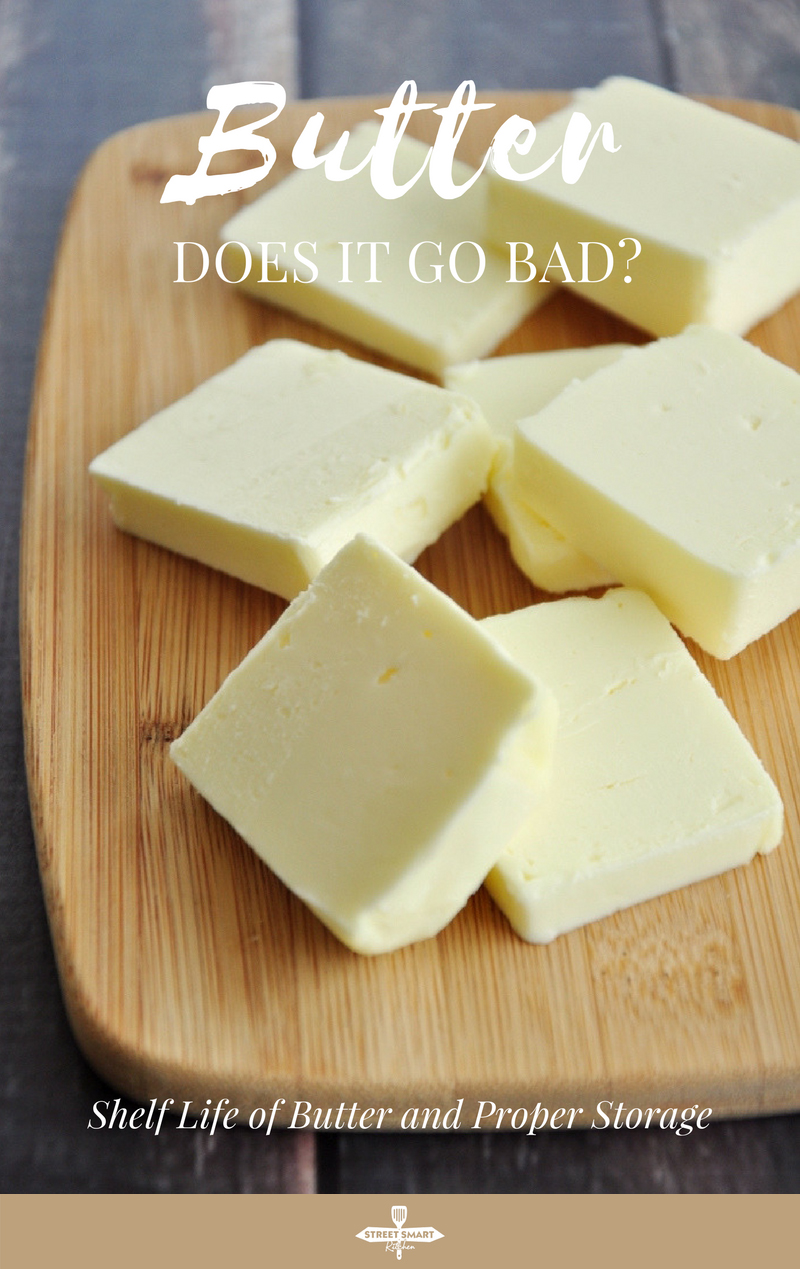
About the Author
Sharon Chen is an Integrative Nutrition Health Coach and author of the Complete Sous Vide Cookbook. She believes food not only brings healing but also connection. As the creator of StreetSmart Kitchen, she aims to make meal prep easier than ever and help you find balance, ease, joy, and simplicity in the kitchen as you improve your well-being.



